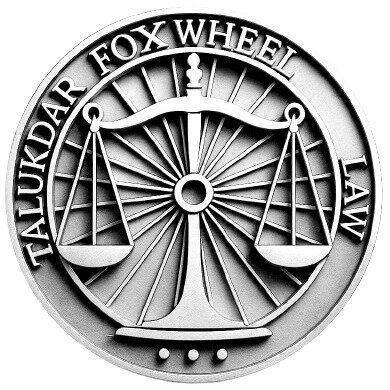Best Native People Lawyers in Guwahati
Share your needs with us, get contacted by law firms.
Free. Takes 2 min.
List of the best lawyers in Guwahati, India
About Native People Law in Guwahati, India
Guwahati, the largest city in Assam, is home to a diverse range of communities, including several indigenous (native) groups such as the Bodo, Karbi, Mising, Rabha, Dimasa, and others. These groups are generally recognized as Scheduled Tribes (ST) or communities under Indian law, entitling them to specific constitutional safeguards and special rights. Native people in this context refers primarily to the tribal communities with a historical presence in the region. Legal matters involving native people in Guwahati often relate to land rights, cultural preservation, access to government benefits, and protection under both local and national laws.
Why You May Need a Lawyer
There are several circumstances in which native people in Guwahati or those working with these communities may require legal assistance:
- Disputes over land ownership or tenancy involving ancestral or community land.
- Matters related to government reservation benefits (jobs, education) and issuance of certificates (Caste, Domicile, Tribal).
- Protection against displacement due to infrastructure, industrial, or urban development projects.
- Issues regarding violation of customary rights, traditions, or cultural property.
- Proof and documentation about Scheduled Tribe status for various statutory benefits.
- Assistance with representation before commissions, local councils, or government agencies.
- Cases of discrimination, exploitation, or denial of rights specifically impacting native communities.
- Legal aid for issues involving marriage, inheritance, or succession under customary or tribal laws.
- Engagement with development schemes and legal compliance for organizations working with native people.
- Protection under special laws such as the Scheduled Castes and Scheduled Tribes (Prevention of Atrocities) Act, 1989.
Local Laws Overview
Key legal frameworks relevant to native people in Guwahati include:
- Scheduled Tribes Recognition: The Constitution (Scheduled Tribes) Order, 1950, lists the recognized tribes of Assam. This status underpins eligibility for reservations and legal protections.
- Sixth Schedule of the Indian Constitution: Guwahati is not directly under the Sixth Schedule, but many nearby regions are. The Sixth Schedule provides for Autonomy in Administration and Self-Governance for tribal areas through Autonomous District Councils.
- Land Laws: Assam Land and Revenue Regulation, 1886 and subsequent amendments contain provisions protecting tribal land from transfer or alienation, aiming to prevent non-tribals from acquiring tribal land.
- Prevention of Atrocities: The SC/ST (Prevention of Atrocities) Act provides additional protection to native people against specific crimes.
- Welfare Measures: Various government schemes for education, skill development, and economic upliftment are specifically targeted at native communities, requiring certification and legal compliance.
- Customary Rights: Assam recognizes certain traditional laws and customs, especially in matters like inheritance, marriage, and dispute settlement, provided they do not conflict with general law.
Frequently Asked Questions
Who are considered native people or Scheduled Tribes in Guwahati?
Native people in Guwahati are generally those belonging to Assam's officially recognized Scheduled Tribes, such as the Bodo, Mising, Karbi, and Rabha, as per the Constitution (Scheduled Tribes) Order, 1950.
How can I get a Tribal Certificate or ST Certificate in Guwahati?
You must apply through the local revenue office (typically the Deputy Commissioner’s office), providing proof of ancestry, community affiliation, and documents such as family lineage and residence.
Are there special land rights for native people in Assam?
Yes. Certain provisions of Assam Land and Revenue Regulation restrict the sale or transfer of tribal lands to non-tribals, to protect the interests of native communities.
What protection exists if a native person faces discrimination or violence?
The Scheduled Castes and Scheduled Tribes (Prevention of Atrocities) Act, 1989, provides strong protection. Incidents can be reported to police and specialized courts deal with such cases.
What legal help is available for issues related to government reservation benefits?
Consulting a lawyer can assist in cases of denial or disputes related to reservation in jobs, education, and other statutory entitlements. They can also help with the appeals process.
How are disputes about customary law matters like marriage or succession handled?
Many tribal communities in Assam follow their customary laws. Such disputes may be settled through traditional councils, but can also be addressed in regular courts if needed.
What should I do if ancestral land is threatened by a government project?
Seek immediate legal advice. You may be entitled to notice, rehabilitation, and compensation, or may have grounds to challenge acquisition based on land laws and constitutional protections.
Can a non-tribal marry a tribal person and gain the same rights?
No, simply marrying a tribal person does not confer tribal status or rights to the non-tribal spouse or their children, as per current legal norms.
Are there special courts or bodies for native people’s issues in Guwahati?
While there are no separate tribal courts in Guwahati, the National/State Commission for Scheduled Tribes and other grievance bodies monitor and address complaints from native people.
Where can I find legal aid or free legal services in Guwahati?
The Assam State Legal Services Authority (ASLSA), District Legal Services Authorities, and some NGOs provide free or subsidized legal help to native people and vulnerable groups.
Additional Resources
- Office of the Commissioner & Secretary for Welfare of Plain Tribes and Backward Classes, Assam: Handles policies and welfare programs for native communities.
- Assam State Legal Services Authority (ASLSA): Offers free legal aid and guidance to those in need.
- State and National Commissions for Scheduled Tribes: Monitor and protect tribal rights, address grievances, and provide advocacy.
- Local NGOs: Organizations such as All Assam Tribal Sangha, North East Network, and others work on rights and welfare of native people.
- District Administration Offices: For certificates and documentation related to tribal status and land.
- Autonomous District Councils: For those living near Guwahati in Sixth Schedule areas.
Next Steps
If you or someone you know needs legal assistance relating to native people’s rights in Guwahati:
- Gather all necessary documentation (identity, ancestral, land, or community records).
- Visit your local District Legal Services Authority or approach legal aid clinics for free initial advice.
- If possible, consult a lawyer who specializes in tribal or land rights laws specific to Assam.
- Reach out to governmental offices such as the Welfare Department for guidance on policy matters.
- In case of urgent matters (like eviction or violence), contact the police and relevant commissions immediately.
- Stay informed about your rights under central and state legislations.
Legal issues involving native people can be complex due to the interplay of customary, state, and national laws. Professional guidance ensures your rights are protected and your interests represented appropriately.
Lawzana helps you find the best lawyers and law firms in Guwahati through a curated and pre-screened list of qualified legal professionals. Our platform offers rankings and detailed profiles of attorneys and law firms, allowing you to compare based on practice areas, including Native People, experience, and client feedback.
Each profile includes a description of the firm's areas of practice, client reviews, team members and partners, year of establishment, spoken languages, office locations, contact information, social media presence, and any published articles or resources. Most firms on our platform speak English and are experienced in both local and international legal matters.
Get a quote from top-rated law firms in Guwahati, India — quickly, securely, and without unnecessary hassle.
Disclaimer:
The information provided on this page is for general informational purposes only and does not constitute legal advice. While we strive to ensure the accuracy and relevance of the content, legal information may change over time, and interpretations of the law can vary. You should always consult with a qualified legal professional for advice specific to your situation.
We disclaim all liability for actions taken or not taken based on the content of this page. If you believe any information is incorrect or outdated, please contact us, and we will review and update it where appropriate.












